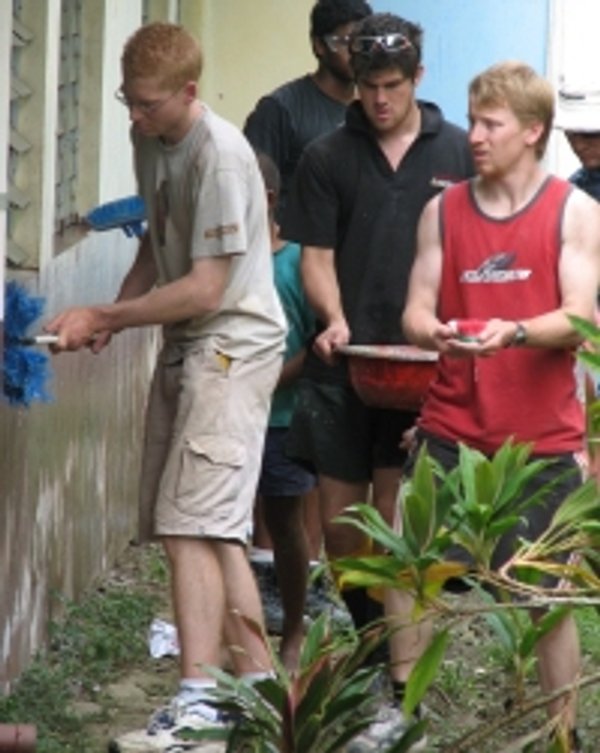The project was an annual “workcamp” organized by Warrane College (www.warrane.unsw.edu.au) in conjunction with Reledev Australia Limited (www.reledev.org.au).
Navunibitu Catholic School is a primary school located near the picturesque Viti Levu Bay. Exposure to tropical conditions of heat, wind and rain deteriorates the physical structure of the school.
The restoration project focused on repairing holes in the iron roof, replacing broken windows, repairing walls and painting the exterior of the school.
While there, it was obvious that urgent plumbing work also needed to be completed. Plumbing and waste disposal systems were improved for the school and surrounding dwellings.
The volunteers spent two weeks in the school, working every day except Sundays. With only one trained tradesman, the work was completed with the enthusiasm and hard work of all the volunteers.

Among them were students of diverse disciplines at university including Engineering, Law, Medicine and Business, mainly from Sydney, Australia and Auckland, New Zealand.
From the moment the volunteers arrived, they were welcomed warmly by the residents and students of Navunibitu.
On the first night, a traditional kava ceremony marked the arrival of the group lead by Alexander Perrottet, Assistant Dean of Warrane College.
Volunteers were constantly impressed with the generosity of locals who provided hospitality and catering for the duration of the project.
Even the young students showed their appreciation by trying to help the volunteers with painting and small jobs around the school.

The volunteers started their day with Mass in the historic St Francis Xavier Catholic Church, famous for its frescoes created by Jean Charlot, including The Black Christ and Worshipers.
Both the idyllic setting of church and the faith of the local people provided inspiration for volunteers to reflect on their own lives.
In the spare moments outside work, the volunteers spent time playing sport with school students, such as the famous “one-touch” football.
There was also time to explore local waterfalls, mountains and the neighbouring island of Nananu-i-ra.
The workcamp was an opportunity to help a community in need of relief work. It also provided a chance to learn from the local people of Navunibitu: about faith, hospitality and an optimistic approach to life.
